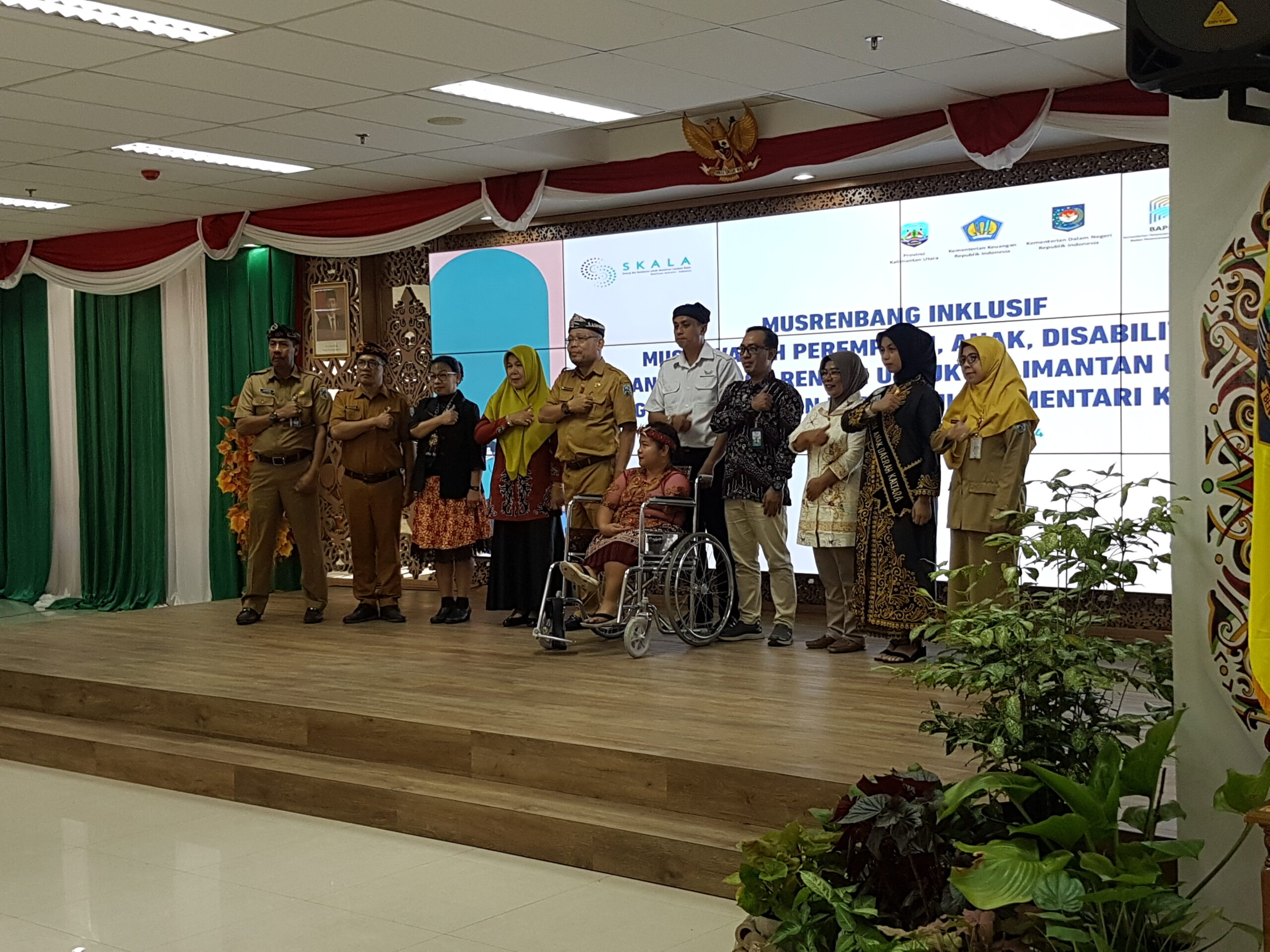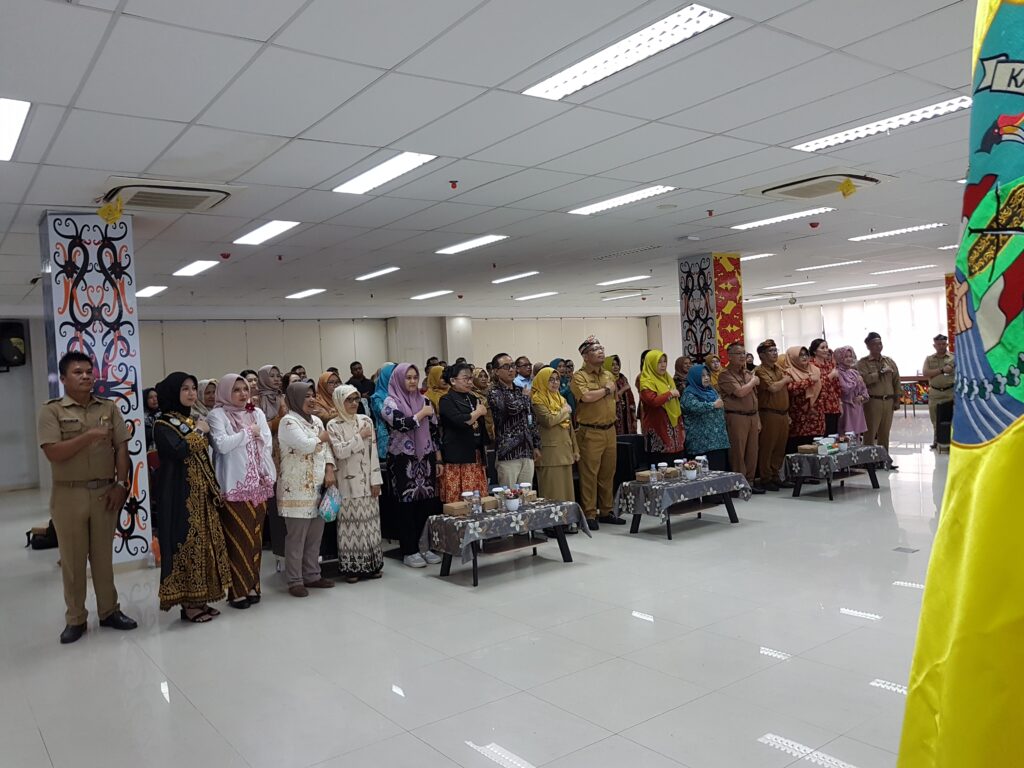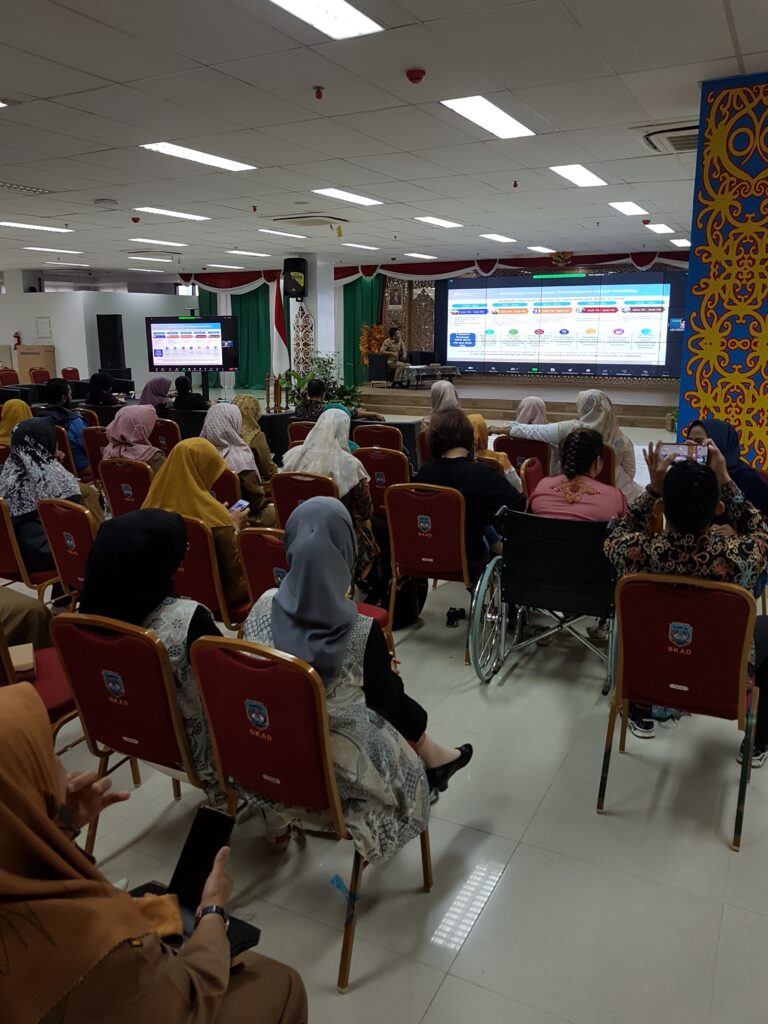Musrenbang Inklusi in North Kalimantan: All Voices Count

Indonesia’s long-term development plan (2025–2045) envisions inclusive and sustainable growth with social transformation at its core. It aims to ensure that basic services are accessible to everyone, regardless of background, identity, or ability. However, for women, people with disabilities, and other vulnerable groups, this vision often remains out of reach. To bridge this gap, it is essential to incorporate their voices and experiences in the development planning process.
A key mechanism for this is the Development Planning Consultation (Musyawarah Perencanaan Pembangunan/Musrenbang), as outlined in Law No. 25/2004 on the National Development Planning System. This bottom-up process empowers communities to set local priorities. By embedding gender, disability, and social inclusion principles, Musrenbang can transform into a truly inclusive platform that allows all citizens – especially the most vulnerable – to influence policies that improve their lives.
Tackling Inequality, One Voice at A Time
Inclusive governance is crucial for achieving North Kalimantan’s sustainable development goals. Yet, women in the province continue to face significant challenges in accessing services and participating in decision-making. In 2023, North Kalimantan’s Gender Development Index (GDI) was 88.46%, below the national average of 91.85%. Similarly, the Gender Empowerment Index (GEI) was 58.86%, far below the national average of 76.90%. These statistics underscore the persistent gender disparities in critical areas like health, education, and access to economic and social resources. The low GEI particularly highlights the limited opportunities for women to participate in economic and political spheres.
Child rights and protection are also a growing concern in North Kalimantan, which has one of the highest rates of child marriage in Indonesia. In 2022, 17.04% of women in the province married between the ages of 17 and 18, and 12.68% married before the age of 16 – far higher than the national average of 8.06% (Ministry of Women’s Empowerment and Child Protection). Furthermore, North Kalimantan’s population includes 36,558 individuals with mild disabilities and 9,889 with severe disabilities (Socioeconomy Registry, 2022).
To ensure that the aspirations of vulnerable groups are reflected in programs and basic services, North Kalimantan established the Communication Forum for Disabled, Vulnerable Groups, Women, and Children. This network of 12 civil society organisations and five local government agencies plays a key role in bringing their perspectives to the Musrenbang Inklusi.
Mentari North Kalimantan: A Model of for Inclusive Governance
To advance inclusive planning, the North Kalimantan Provincial Government, with support from SKALA, hosted the Musrenbang Inklusi, Mentari North Kalimantan: An Inclusive Forum for Women, Children, Persons with Disabilities, and Vulnerable Groups for a Just and Prosperous North Kalimantan. The 2024 event brought together 165 participants, including government officials, academics, women’s organisations, persons with disabilities, and indigenous communities.
Musrenbang Inklusi combined in-person and online forums, breaking down sectoral barriers and enabling real-time feedback from communities that the government directly addressed. The initiative has led to significant progress:
- Increased representation of women, children, persons with disabilities, and vulnerable groups through an inclusive platform
- Responsive programs and policies that better accommodate the needs of vulnerable groups, such as the Draft Local Regulation on Gender Mainstreaming and Disability Inclusion
- Embedding principles of equality and inclusion in government processes
- Technical guidelines formulated to inform government programs addressing the needs of vulnerable groups
Sustaining Momentum for Lasting Inclusion
Musrenbang Inklusi offers a new approach to development planning. The Head of the North Kalimantan Office for Women’s Empowerment, Child Protection, Population Control and Family Planning, Wahyuni Nuzband, reiterated the importance of its continuity.
“Opportunities for women and persons with disabilities to participate in policymaking have been very limited. With Musrenbang Inklusi, their aspirations will be consistently advocated to ensure inclusion in the Regional Medium-Term Development Plan,” she said.
SKALA’s efforts to support Musrenbang Inklusi highlight the importance of creating participatory spaces where civil society networks and government collaborate to embed Gender Equality, Disability, and Social Inclusion (GEDSI) into development planning. North Kalimantan is one of ten provinces where SKALA is working with local governments to initiate Musrenbang Inklusi. In East Nusa Tenggara, SKALA is developing the concept of civil society networks’ involvement through Thematic Musrenbang, which precedes regular musrenbang sessions. In Gorontalo, civil society networks are collaborating with SKALA and partners to raise awareness of disability issues to contribute to inclusive planning efforts. The lessons learnt are being used as a model to improve the participatory processes in other provinces that will lead to a wider impact.








